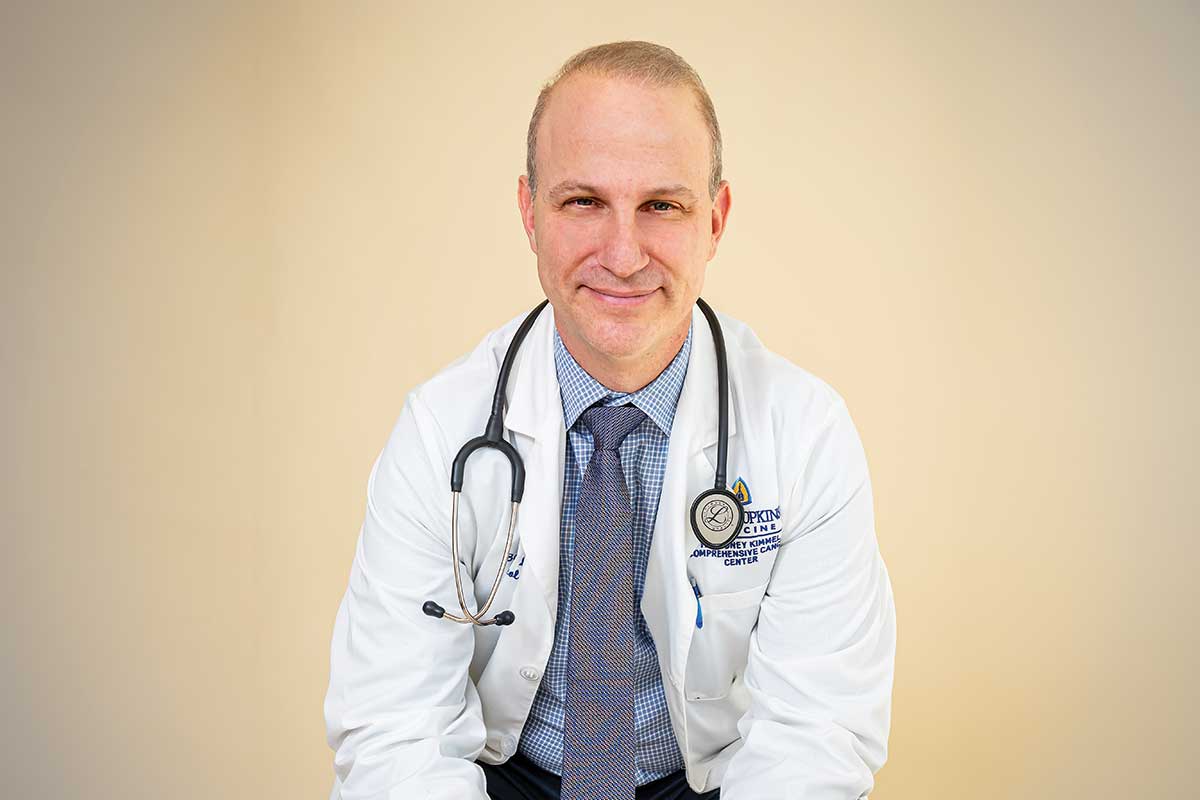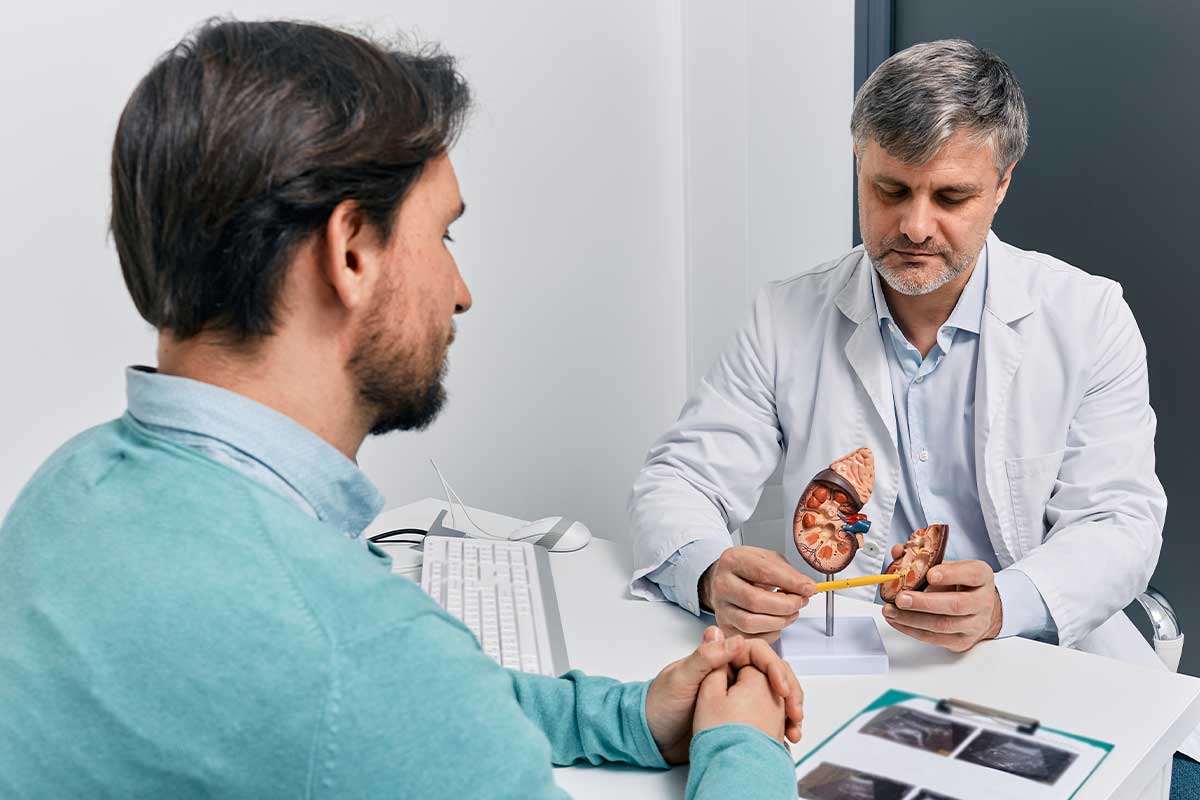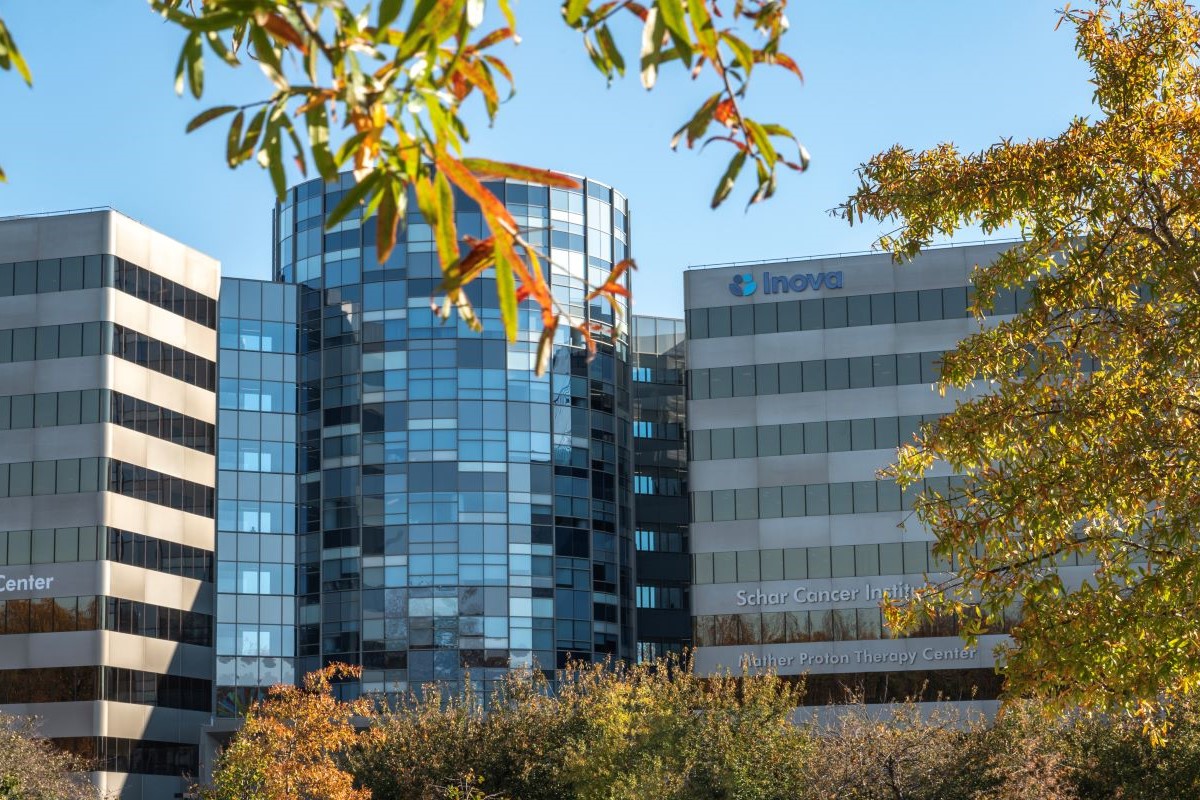As part of Northern Virginia Magazine’s annual Top Doctors issue, we asked several physicians in Northern Virginia and Washington, DC, to tell us what’s surprised them about their field, how they stay healthy, and more.
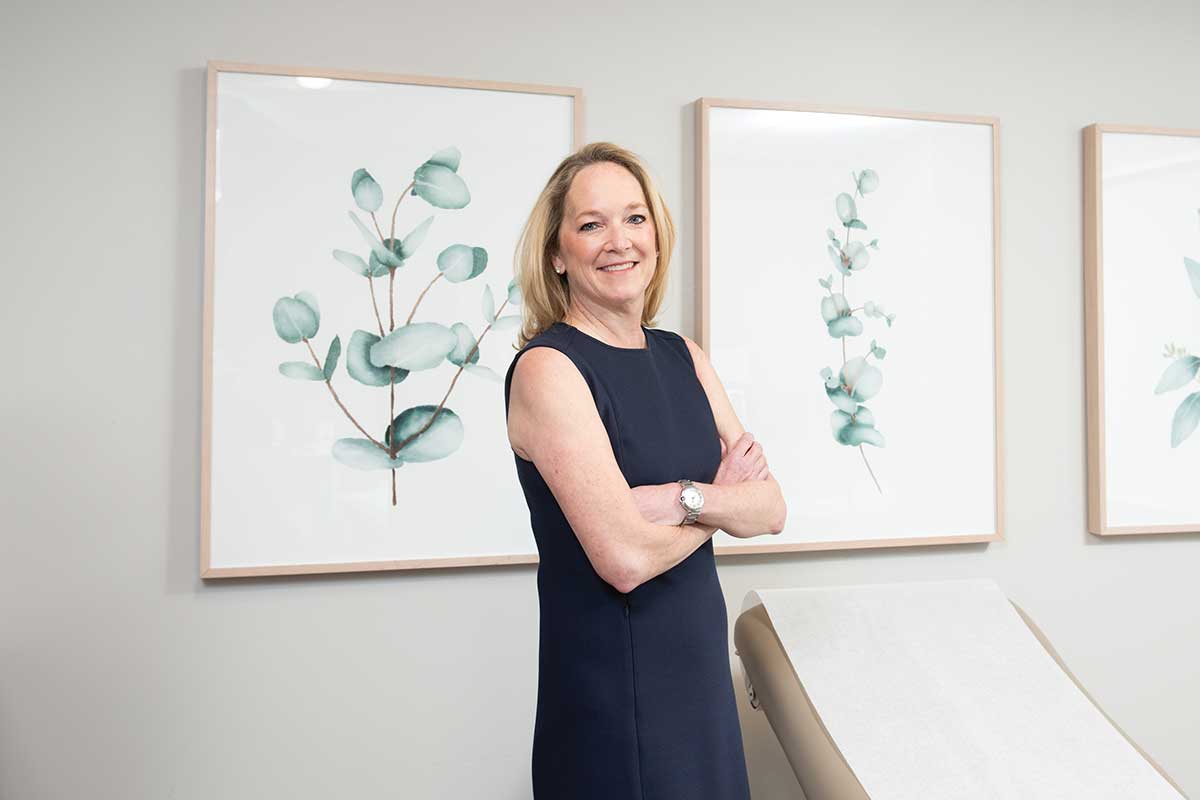
Dr. Stephanie Akbari
Virginia Cancer Specialists
Surgery
Why did you choose your specialty?
I actually did general surgery for about two years, and at that time, I noticed that there were starting to be lots of changes in terms of breast cancer care where previously that had not occurred. It was an exciting time where we were starting to be able to do more things than we ever did before in terms of cosmetics and reconstruction. That, coupled with the fact that I wanted to have children and have more control over my life, made it a good choice.
How do you anticipate your field changing in the next 10 years?
I think we’re going to end up doing less surgery. We’re going to end up doing more targeted therapy, typically targeted chemotherapy agents or immunotherapy agents, such that actually removing the tumor will likely not be a requirement in the future. So hopefully, you know, within 20 to 25 years, breast surgeons will be doing other things than breast surgery.
What do you find most fulfilling about your work?
It really is helping people and knowing that you are able to make someone less fearful and more hopeful, not in terms of just themselves but their whole family and the family dynamic.
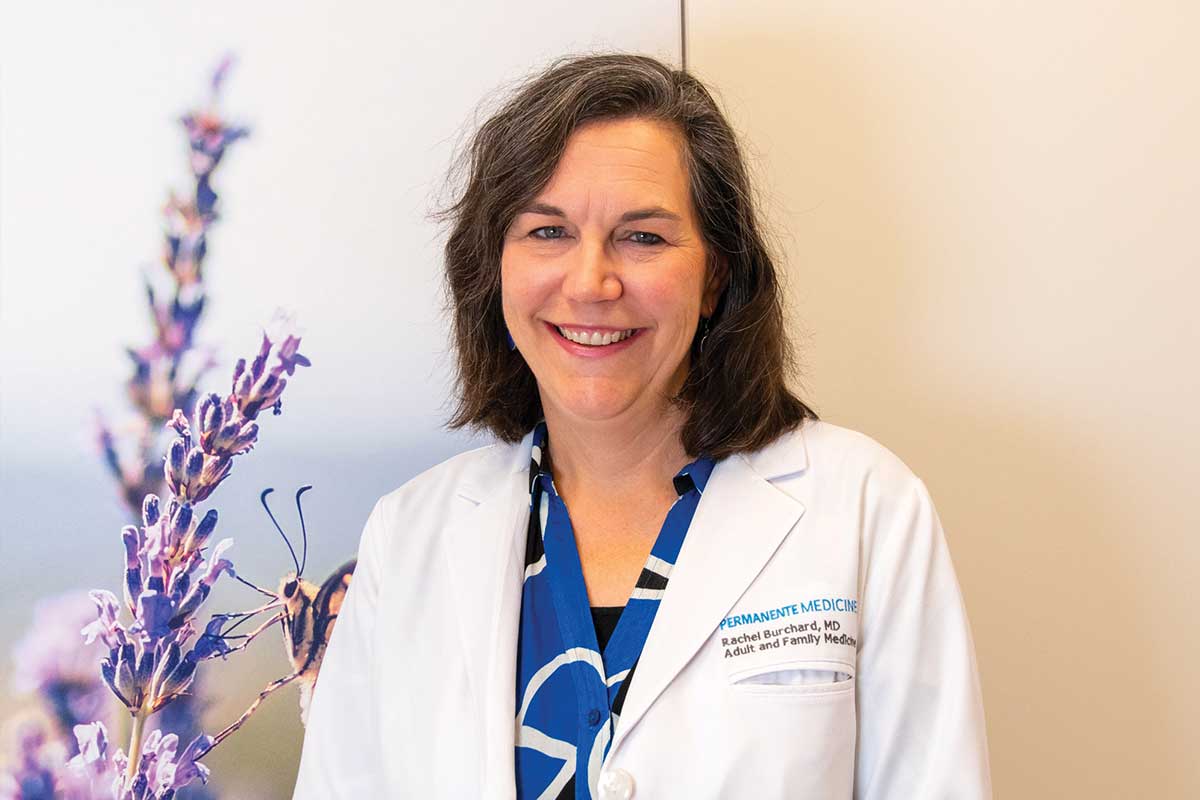
Dr. Rachel Burchard
Kaiser Permanente | Mid-Atlantic Permanente Medical Group
Internal Medicine
Why did you choose your specialty?
Internal medicine is for those who are curious about everything, from the amazing intricacies of the inner workings of the kidney to the best way to encourage someone to get their flu shot. Primary care has infinite variety. It’s never boring, and there is always something new to learn.
What’s the most fulfilling aspect of your work?
Helping my patients understand how their body works and how to best take care of it. Searching up symptoms online can be alarming, but for most of us, our bodies are pretty functional. When we’ve ruled out the dangerous, we can move on to figuring out how to manage the discomforts of daily life.
What’s one healthy habit you’d recommend starting?
Try to give your body what it was designed for: movement, fresh air, food that comes from ingredients rather than packages. Do as many of these as you can, as many days as you can.
How do you de-stress after a difficult day?
A walk with the dog or a glass of wine with a friend.
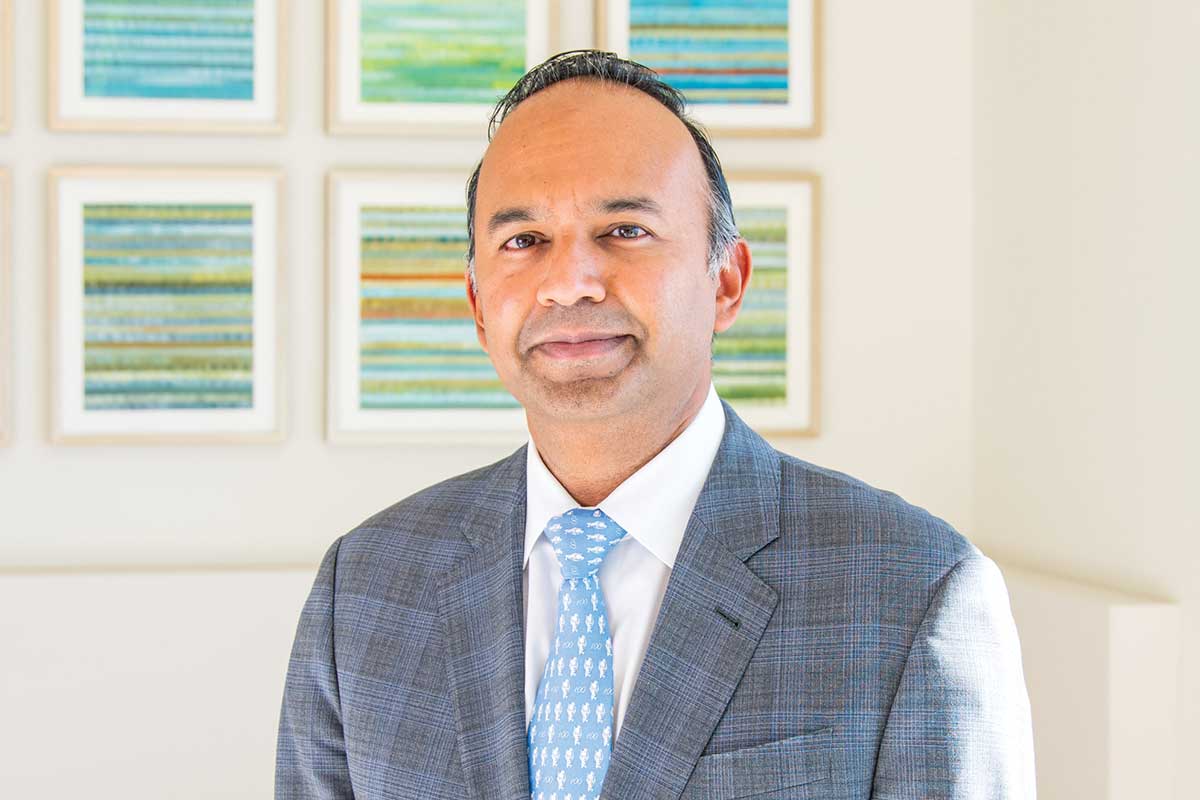
Dr. Murray Ramanathan
Johns Hopkins
Otolaryngology
Why did you choose your specialty?
Growing up as a kid, I had a lot of sinus and nasal problems. So in med school, you become interested in conditions that you have, and you begin to relate to those concerns and the complaints people have.
What’s most fulfilling about your work?
Definitely the ability to help people improve their quality of life. Probably 75 to 80 percent of what I do is really quality of life stuff — people that can’t breathe, through their nose, people that are congested. But people are miserable when they can’t breathe and their day-to-day ability to function is really, really hampered. So that is what brings the most joy to what I do.
What is one healthy habit you would recommend someone start?
Saline washes are probably the biggest game changer in our industry. If you’re in a polluted, dirty environment, those particulates deposit in the nose, and the easiest way to manage that is to rinse out the particulates.
Do you have advice for an aspiring doctor?
It’s always important to listen to your patients carefully because I think the answer to their problem is almost always in their story some way or another.
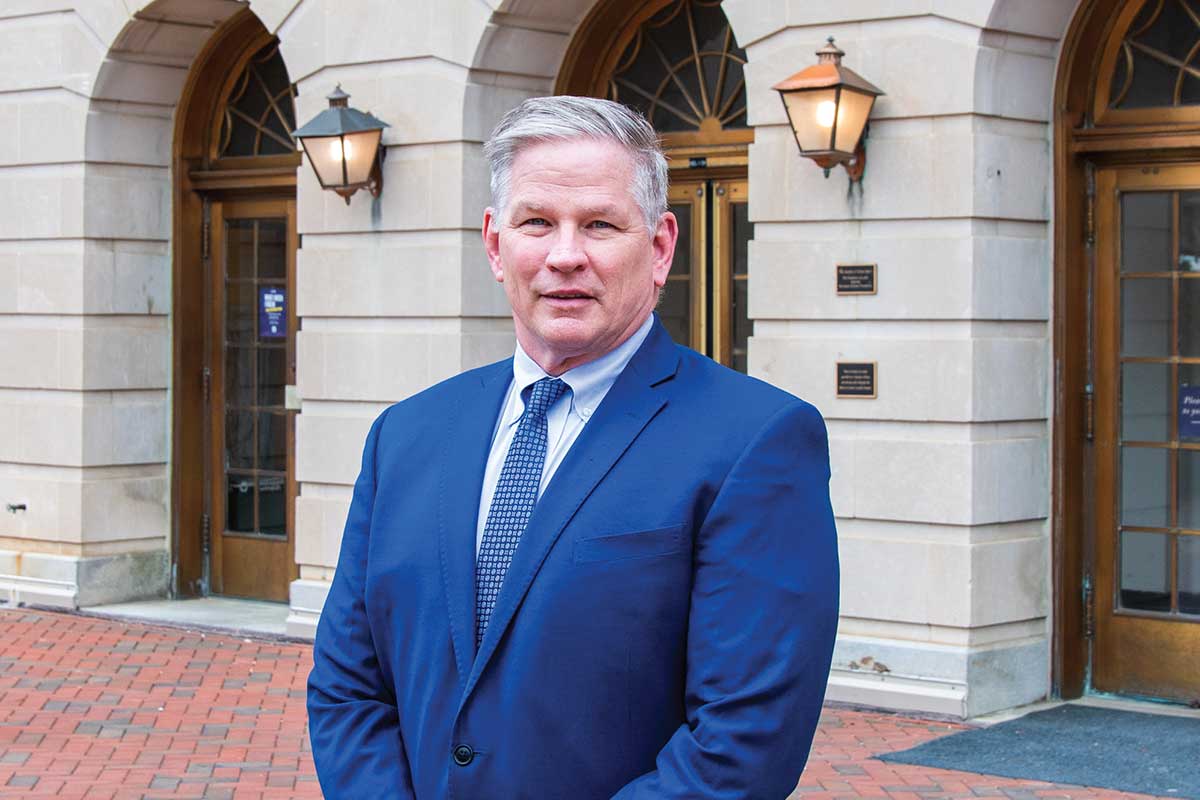
Dr. Louis Dainty
MedStar Health
Gynecologic Oncology
Why did you choose your specialty?
I love taking care of women, and I love the focus that people have when they’re confronted with cancer. Your life becomes much more focused, and then your decisions are much simpler, for the most part.
How have advancements in cancer research and treatment helped with your work?
That’s been dramatic. For five years, the pace that we’ve had in immunotherapy and biologics has changed the way we care for women, for sure. It used to be much more depressing; I think it gives people a lot more hope.
What’s most fulfilling about your work?
It’s just a long-term relationship. I think GYN oncology is unique from any other specialty in that [we] diagnose people, treat them, and then we do surveillance and we treat them for a lifetime. The bottom line is, once they come to us, they stay with us for life. That’s the most enjoyable thing.
What’s the most important piece of health advice you would give?
Be active. It doesn’t have to be running. It can be walking, it could be stretching; you just have to keep moving.
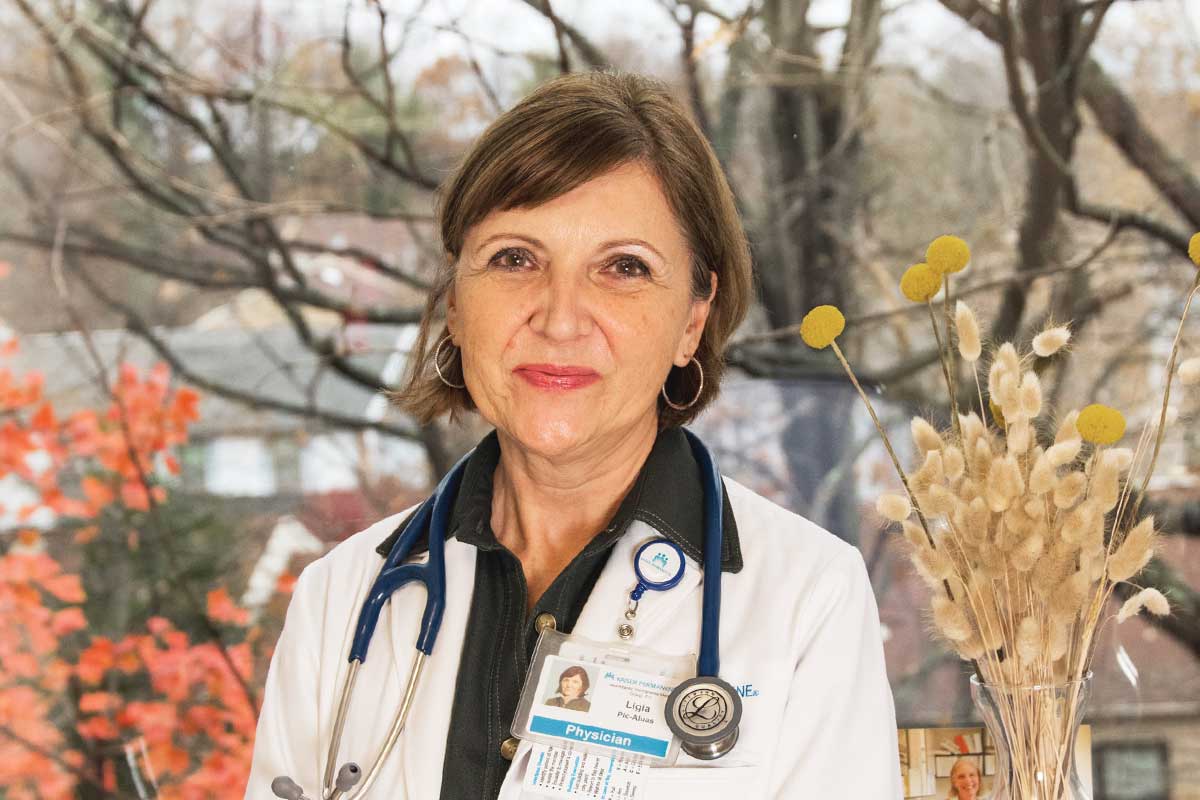
Dr. Ligia Pic-Aluas
Kaiser Permanente | Mid-Atlantic Permanente Medical Group
Infectious Diseases
Why did you choose your specialty?
I took an interest in biology at a very young age. I liked plants and animals, big, small, and very small. I had a microscope and made my own little dissections. Once I was in medical school, I took great interest in microbiology, and my dissertation was on seasonal coronaviruses. That led me to an infectious diseases fellowship. I am fascinated by the interaction between us humans and “the bugs,” as I call them.
What is your favorite patient story?
I remember this young patient with a very severe lung infection. He was extremely ill when he arrived at the hospital, with high fever, chest pain, and shortness of breath. His story started with a severe sore throat for a couple of weeks, and although he had been given antibiotics, things got worse. In my mind, this was a typical presentation of an infection with a bacteria called Fusobacterium necrophorum. Although standard cultures came back negative, we fortunately have more advanced tools to figure out the cause of an infection. In this case, we used a test that can detect the DNA of bacteria, which rapidly confirmed our initial suspicion, giving us and the patient confidence in the treatment. Our patient walked out of the hospital and returned to college.
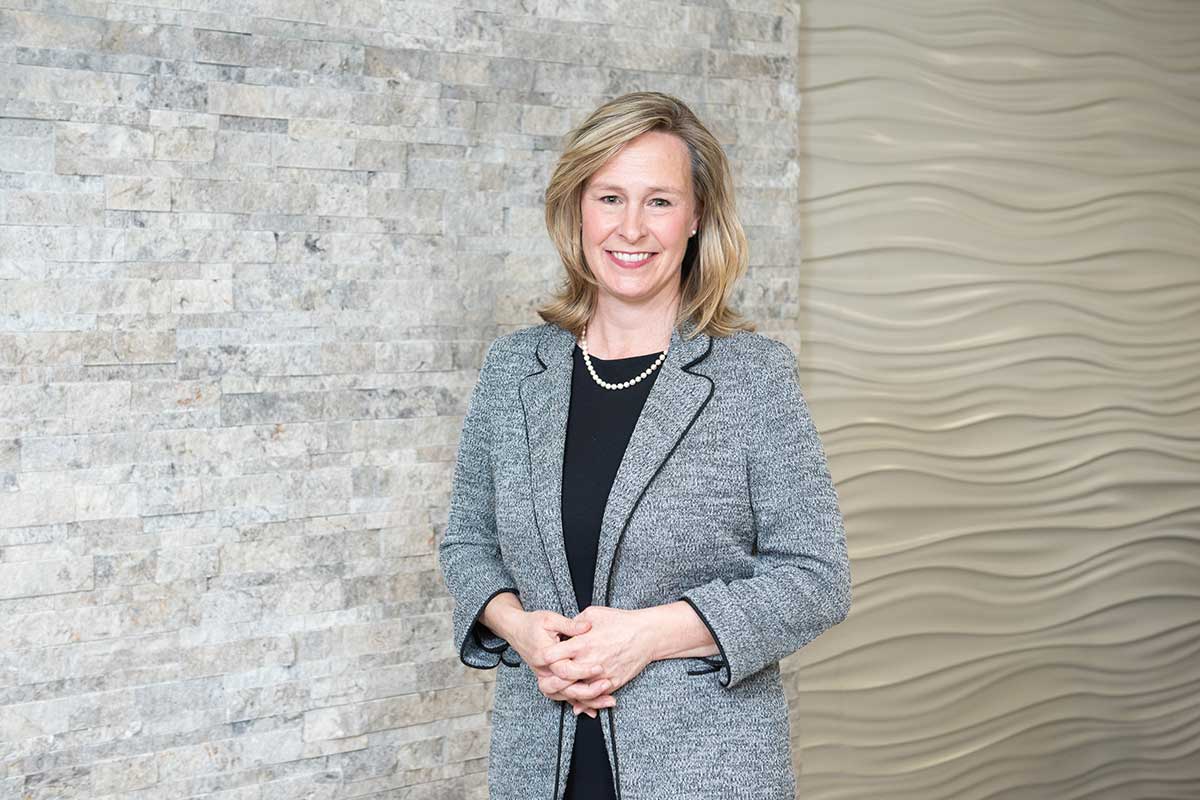
Dr. Jessica Heintz
Virginia Cancer Specialists
Hospice & Palliative Medicine
How did you choose your specialty?
I was really drawn to the opportunities to spend more time with patients. Part of what our specialty focuses on is really communication with patients and understanding their individual priorities and preferences about their care and what really matters to them. If I can help them tolerate the treatment, if I can manage their symptoms … then they can actually have a better outcome, actually live longer.
What have you learned since going into practice?
Never judge a book by its cover. Often-times, you have preconceived notions about what patients prioritize or what we think they will want. And that’s not always the case. … So that’s why it’s so important to sort of create a space and enable patients to be able to amplify their voices and what’s important to them.
What’s most fulfilling about your work?
Certainly, when I can help someone with a symptom that they have been struggling with for a long time, and they come to me and I’m helping them with pain or shortness of breath, or whatever this symptom is, to feel better, and [when] I see them the next time, they say, “What you recommended worked. And I finally don’t feel like I’m suffering anymore.”

Dr. Dominic Raj
The GW Medical Faculty Associates
Nephrology
Why did you choose your specialty?
I was asked to cover once the nephrology ward, and I saw a patient with advanced kidney failure. His skin was peeling, and he was short of breath; he had altered mentation. I admitted him, and they started him on dialysis the next day. One week later, I had to cover the ward again. There was a patient sitting in the bed and calling me, “Doctor, thank you for admitting me.” I looked at this patient I didn’t recognize. He has come completely from a very disfigured person to a very youngish looking [one] … So I was very interested in what dialysis could do.
What have you learned since going into practice?
Most importantly, clinical care. I could see the way treatment is done here is very different from India. In India, patients tell you, “You do what is best for me, doctor.” Here, it is very different. The patients want to be engaged in the care. That is very good because they want to learn more.
What healthy habits do you recommend for patients?
Most important is reduce salt intake and make sure your blood pressure is under control. Make sure you have healthy dietary habits. Make sure you exercise regularly and … are healthy cardiovascular-wise.
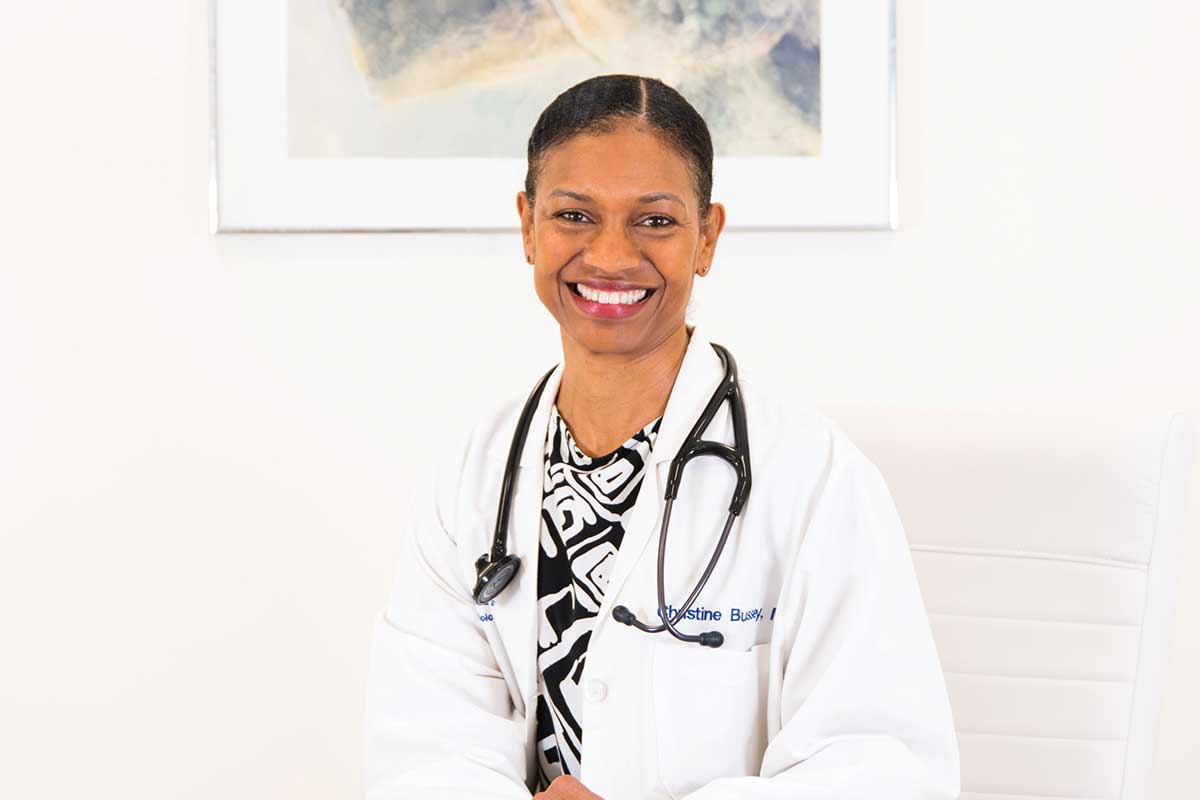
Dr. Christine Bussey
Inova Medical Group
Cardiology
What has surprised you about your field?
I’m surprised at times that what we think is widely known everywhere really isn’t, and so I end up doing more education on things that I thought were common knowledge.
What do you do to stay heart healthy?
I wish I could say that I get eight hours of sleep, and I exercise an hour every day. I don’t. But I like to think that I get in exercise when I can. I mean, minimally, I’d say people should get 30 minutes, three days a week. But I also think just having a social outlet — for me, it’s my kids. Things that make me happy and feel fulfilled. I try and eat healthy. I don’t eat a lot of red meat; I don’t consume a lot of alcohol.
What do you wish people knew about the heart?
It’s the most important organ, and you have to take care of it in your youth, as well as when you are elderly. I also wish they knew that genetics play a large part. If everyone in your family is having heart attacks in their 40s and you think because you’re exercising and dieting well, it won’t hit you — it still might hit you. It might happen a little bit later. But you still have to be aware of that history and make sure that you are still seeing the doctor and addressing it.
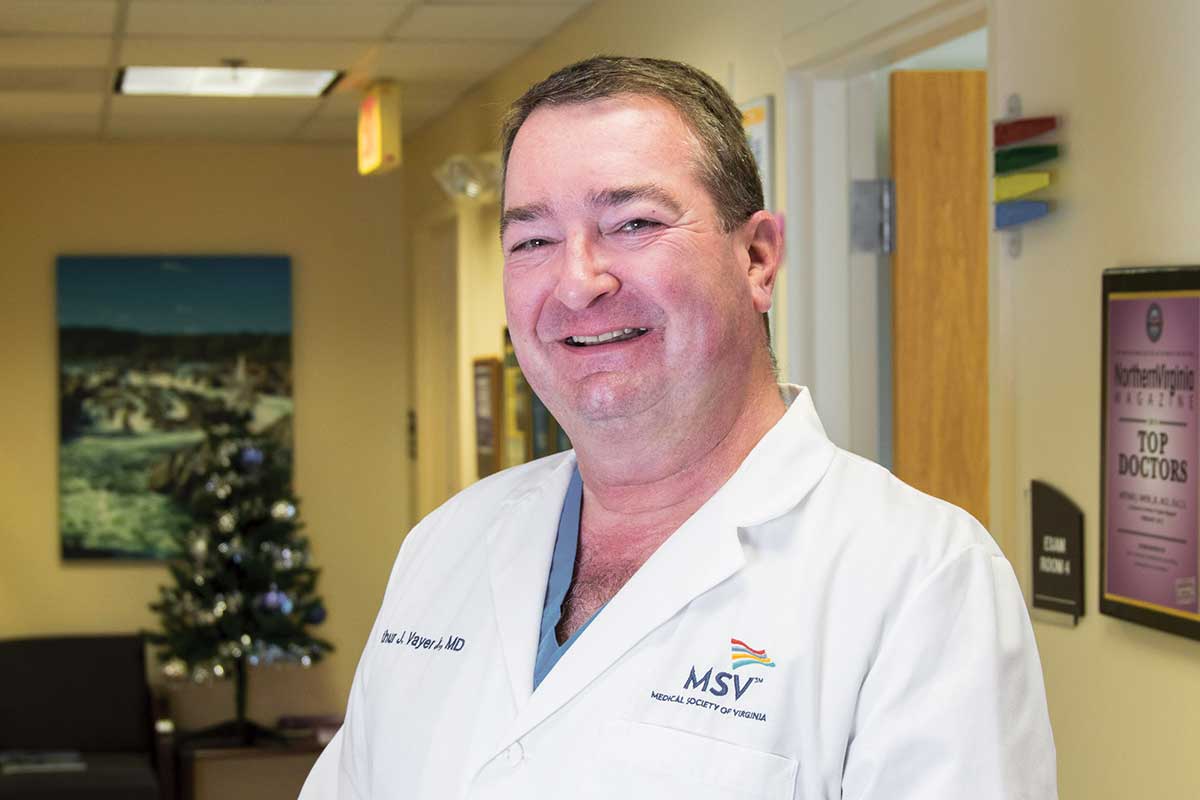
Dr. Arthur J. Vayer Jr.
Sentara Surgery Specialists
Colon & Rectal Surgery
What’s one healthy habit you recommend starting?
If you don’t already, have a nice, healthy diet with good fiber and keep yourself regular. If there are still some silly people out there who are smoking, for heaven’s sakes, stop that.
What’s most fulfilling about your work?
Part of colon and rectal surgery is doing the proctology work and, obviously, a lot of those conditions are very painful. To get someone through an operation that fixes them, and makes them all better so they are pain-free, and to see them in the post-op period — they don’t want to just say hi; they want a big hug. Because really, their life is back, and they’re enjoying it again. I have some of the most grateful patients in the world.
What do you do to stay healthy?
Well, my wife makes me go to the gym several times a month. I’m working out — getting good aerobic activity is also very important. And as I’m kind of getting on in my career, I’ve learned to appreciate setting time aside for myself to try to lessen the stress and really enjoy life. Because I love my career, but I also love my family, my children, and I love spending time with them, too.
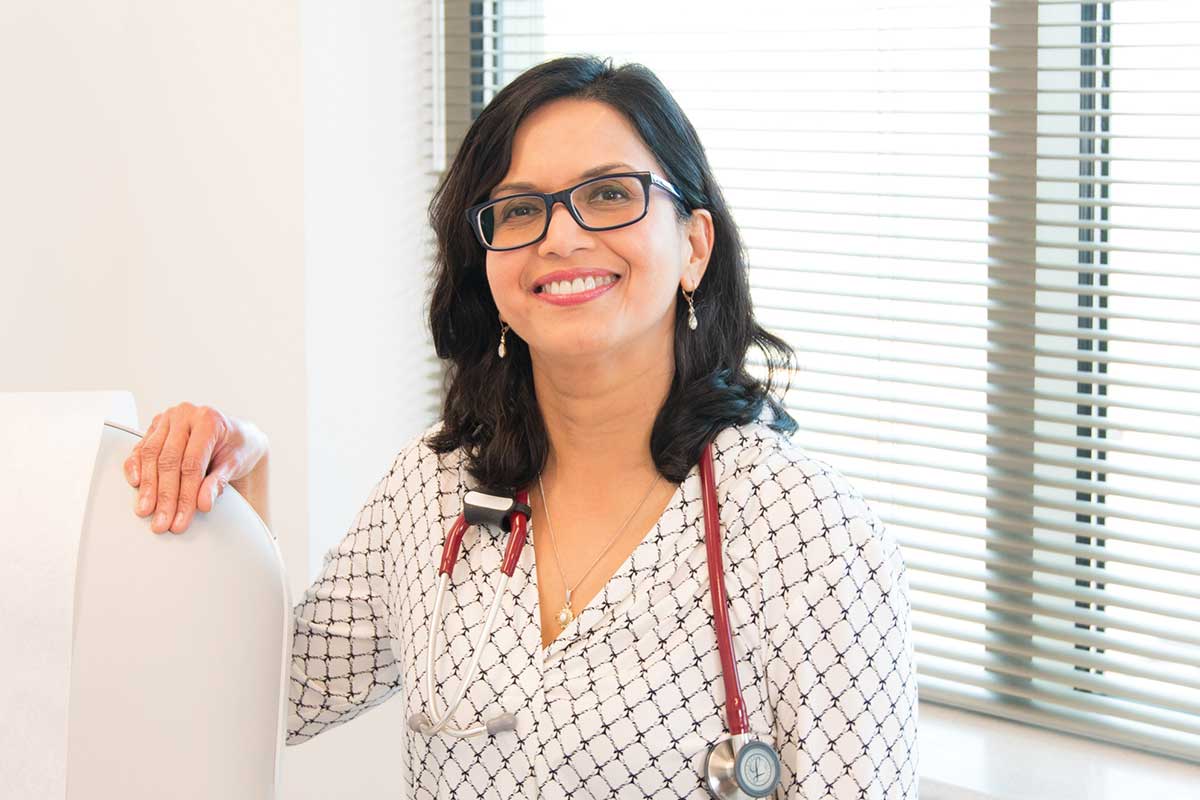
Dr. Reshma Parab
Mary Washington Endocrinology
Endocrinology
What’s one healthy habit you recommend starting?
The one healthy habit I cannot stress enough is portion control. We always talk about diet and exercise as the key elements for weight loss and a healthy life. But I see several patients who complain that they follow a very healthy diet; eat clean, minimally processed food; and still struggle to lose weight. The biggest stumbling block in their case is the portion size.
What have you learned since going into practice?
It is important to remember that each patient is different. What works for one may not necessarily work for another. Patients themselves have their own attributes and attitudes towards any treatments we can offer them, whether it is making lifestyle changes or pursuing more or less aggressive forms of therapy. The biggest successes are seen when the patient is an equally invested partner in the treatment plan.
How do you de-stress after a difficult day?
With our family’s busy schedule, it is sometimes difficult to relax even at home. So on Friday evenings, we make it a point not to schedule any event or activity, but to have quiet family time with a family movie night.

Dr. Benjamin Levy
Johns Hopkins Kimmel Cancer Center at Sibley Memorial Hospital
Oncology/Hematology
What has surprised you about your field?
I would have never dreamed 15 years ago, going into the field of lung cancer, that we would be where we are now. When I started, there were essentially three drugs … that didn’t work all that well. Fast-forward now 15 years with the development of novel therapeutics, immunotherapy, targeted therapies, and a new class of drugs that are yet to be approved but will be called antibody drug conjugates, or ADCs — it’s been incredibly rewarding.
What’s your favorite patient story?
This patient had a very aggressive lung cancer and wasn’t doing well and came to see me as a second opinion. We put her on a drug called pembrolizumab at that time, which is immunotherapy. And we didn’t know that there would be such long-term outcomes for patients with immunotherapy. So the expectations were still rather modest or low when they went on these studies. And all she told me at that time was, “I just want to make it to my son’s graduation.” And that was in 2013. I just got an email from her … with a picture of her and her husband, on their anniversary, saying, “I’m still doing great.” It’s just a remarkable story.
What’s a piece of health advice you’d like to give cancer patients?
One, advocate for yourself. Two, “clinical trial” is not a bad word. And three, partner with good advocacy groups.
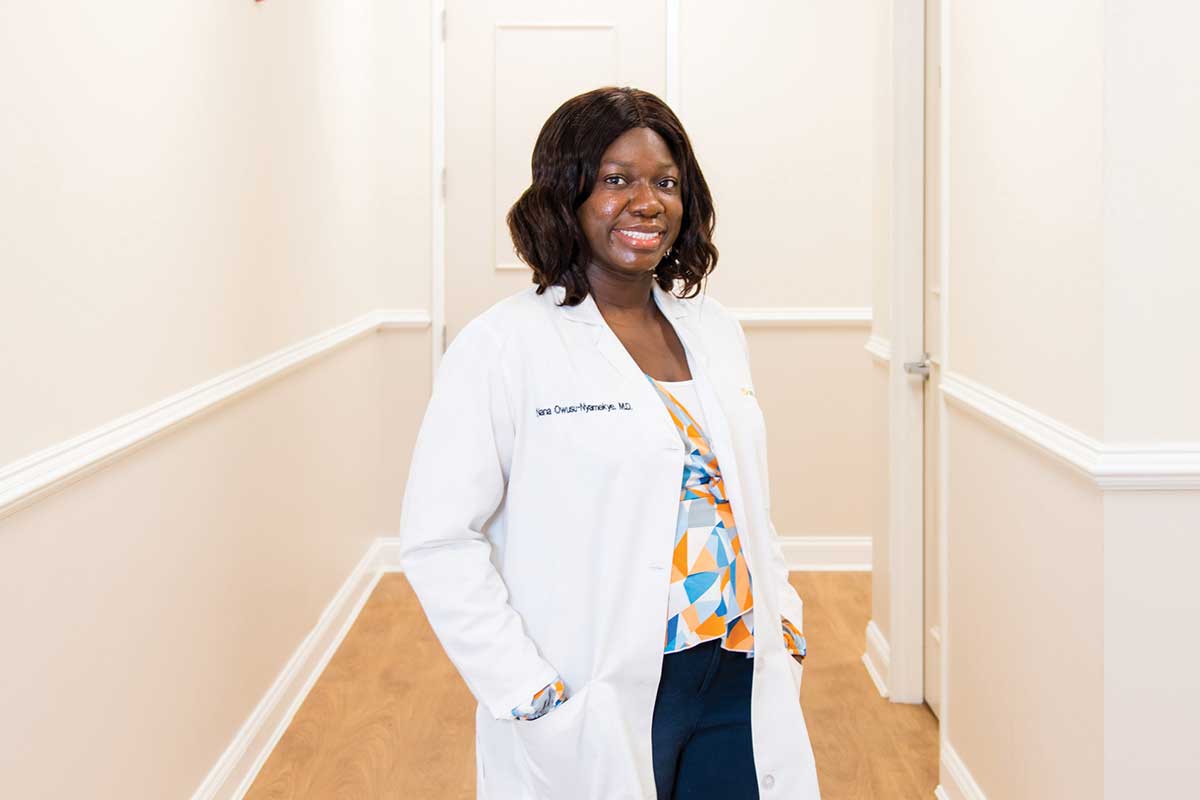
Dr. Nana Adoma Owusu-Nyamekye
Sentara Family & Internal Medicine Physicians
Internal Medicine
What do you find most fulfilling about your work?
Seeing patients’ successes is probably one of the biggest joys, to see that you get to make an impact on someone over a course of time. It may not be within just one appointment. But being in primary care, you get to see them year after year after year. You see the growth and the improvement in the overall health.
What’s one important piece of health advice you’d give?
I would say if you chose your health care provider, or primary care doctor, or specialist, really trust them and the level of knowledge, the years and time it took in training. Try to pay attention and sort of be respectful of what their opinion is and how that could improve your overall health. It’s good to be your own health advocate. But know if you’re reading things on TikToks, those don’t come with years of experience and knowledge behind them.
Are there things that you do to de-stress after a difficult day?
My faith and my family have been the two biggest ways, and then when you do get the opportunity, taking the vacations when you need to, away from the same environment you find yourself in every day.
This story originally ran in our February issue. For more stories like this, subscribe to Northern Virginia Magazine.

